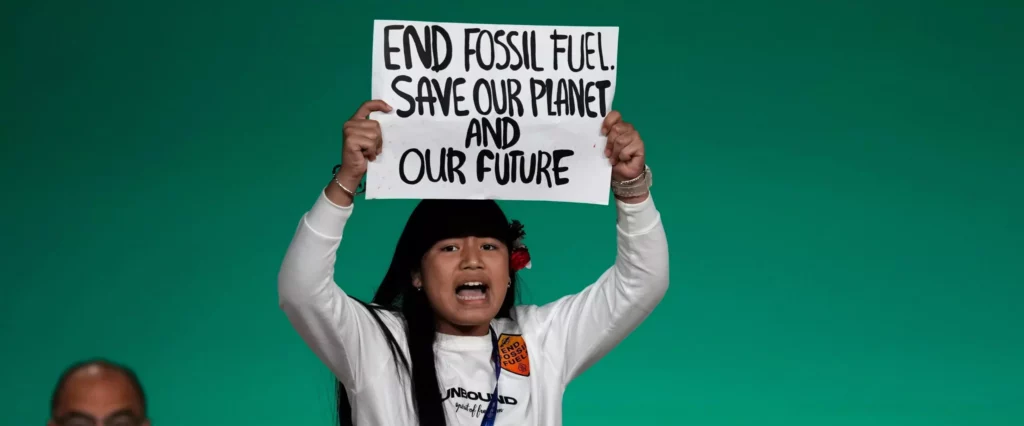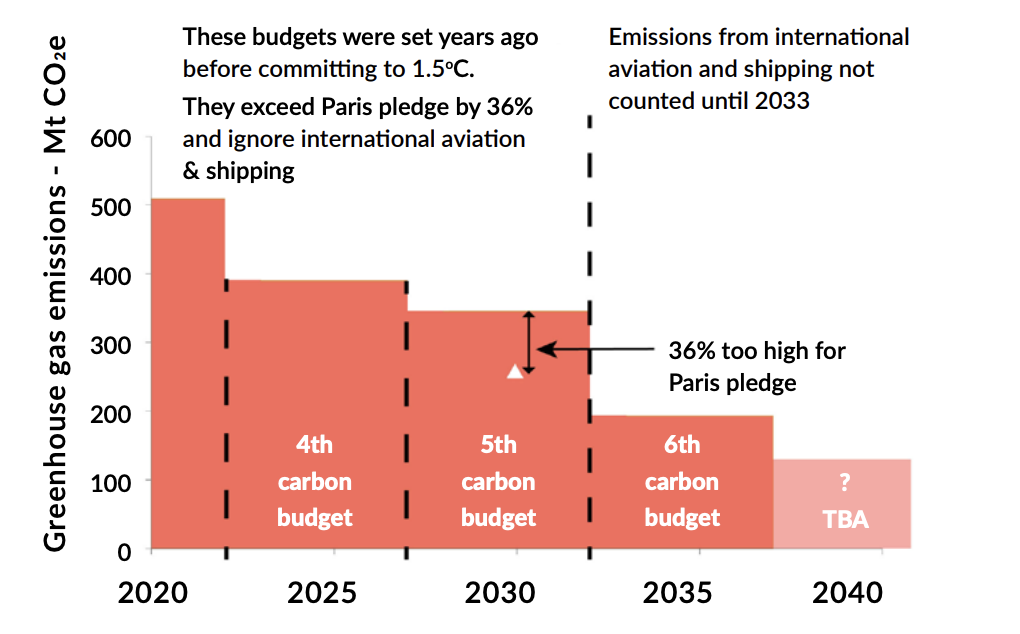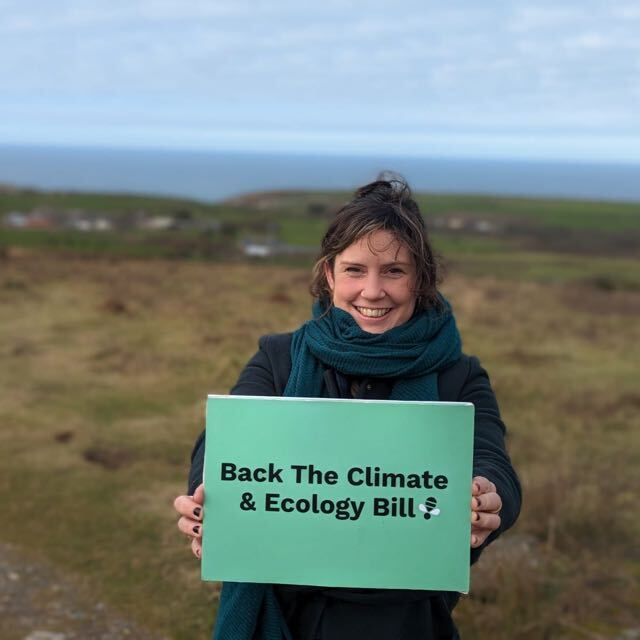We need to cut emissions, fast. Full stop.
Global warming has exceeded 1.5°C over the course of an entire year for the first time, according to the EU climate service. This is a terrifying next rung towards unstoppable climate tipping points. Breaching 1.5°C risks losing “control of our climate for good”—a warning which came from the UK Government’s own Net Zero Strategy (for Zero Hour’s response to the strategy, please see the Net Zero: The Ambition Gap report). The dangers of global temperature increase are well known, by the UK Government’s own admission, and yet we’re seeing rollbacks, new oil and gas licences and delay in action completely misaligned with our current reality. So what do we do now?
The overriding response to this news must be to cut emissions as rapidly as possible and to do so now, rather than making empty promises for the future.
Our current legislation just isn’t up to date, and we need a Climate Change Act 2, the Climate & Nature Bill, to secure a pathway for ambitious action—aligned with the science—into law now. The CAN Bill does so by making sure that we reduce emissions in line with our fair share of the remaining global carbon budget for 1.5°C, and by restoring nature to absorb residual emissions and adapt to the climate impacts. But with temperatures soaring, and the devastating impacts being felt around the globe, is it still realistic to align action with a call for 1.5°C?
Is time up for the Paris Agreement?
Anne Rasmussen, COP28 lead negotiator for the Alliance of Small Island Nations, stated at the recent UN climate summit that “it’s not enough for us to reference the science and then make agreements that ignore what the science is telling us we need to do. We do not want to renegotiate the Paris Agreement [to keep global temperatures to below 2°C with all efforts towards 1.5°C].”
There is a live debate amongst scientists as to how close we are to 1.5°C of warming, and whether indeed we may already be passing it. The Paris Agreement actually doesn’t contain an agreed way of defining the present level of global warming, nor does it define ‘temperature increase’ explicitly. There is some worrying new science which indicates that warming may be accelerating due to the cleaning up of sulphur air pollution. And some leading scientists believe that 1.5°C has now been passed.

But while holding onto the horrifying reality of current indications, it’s important to note that 1.5°C isn’t utterly dead in the water—yet—not completely. This is science in action, and to understand whether we have surpassed 1.5°C for good, temperatures are averaged over many years—not every year is hotter than the last, meaning warming could reach 1.5°C before falling and then rising again. The UN Intergovernmental Panel on Climate Change says the threshold will be surpassed when average warming exceeds 1.5°C over two decades. But we obviously don’t have twenty years to wait.
New indicators are being developed. The Met Office are calling for a different approach that combines the last ten years of observations with a forecast of the coming decade to determine the current level of warming: “This ‘current global warming level’ (CGWL) indicator meets our two criteria—it allows consistency with established IPCC definitions, and provides an instantaneous indicator of current warming”. Lead author, Prof. Richard Betts has said that: “Clarity on breaching the Paris Agreement guardrails will be crucial. Without an agreement on what actually will count as exceeding 1.5°C, we risk distraction and confusion at precisely the time when action to avoid the worst effects of climate change becomes even more urgent.”
The jury is likely to be out for several years on whether the Earth is closer to 1.5°C of warming than thought, at least until we see a year of conditions post the current El Niño effect. In the meantime, it would be grossly negligent not to take this very real risk very seriously. We should already be on an emergency footing, but the emergency level needs switching up significantly.
Net zero targets (alone) just aren’t enough
While the stats and data comes in, global leaders must respond now in all urgency. It is important to keep stating that we need to cut emissions as fast as possible, and put a plan into place for land use change and the restoration of nature to cope with the devastating impacts—now. In 2020 the Climate Change Committee said: “The UK’s net-zero target will not be met without changes in how we use our land. Those changes must start now.”
Unfortunately the UK’s current legislation, the Climate Change Act and the Environment Act, just aren’t fit for purpose. The UK’s carbon budgets (apart from 6th) were set before the IPPC’s 2018 landmark report on 1.5°C and were never revised. We are ignoring emissions from international aviation and shipping, and we are not taking account of our imported emissions. This, shockingly, means that currently almost half of our emissions are being ignored. Targets in the Climate Change Act exceed the Paris pledge by 36% (see, our Net Zero: The Ambition Gap report) and ignore international aviation and shipping. The Environment Act relies largely on voluntary measures to meet targets that will impact overheating, drought and flooding—already ruining lives and businesses.

Relying on net zero by 2050 won’t cut it. Setting ambitious targets for the future isn’t enough. It’s our cumulative emissions that matter, pollutants which are building up in the atmosphere. We need to see emergency reductions in emissions now, as we are set to completely blow our fair share of the global carbon budget long before our 2050 net zero date. The Global Carbon budget demonstrates the maximum amount of cumulative emissions that result in limiting global warming to a certain level. Basically, it allows us to understand what the UK’s minimum ‘slice of the pie’ should be to give us the best chance of keeping global temperatures at levels that humanity can manage.
We need a Climate Change Act 2
As we head into new territory of global increases in temperature and all of the impacts this will have, not just on others overseas but on our food supply and on worsening extreme weather here in the UK, political short termism just won’t do. The overriding message that should be hitting our political leaders hard, is that we need to act as fast as possible right now. There is no option for delay if we are to keep within the 1.5°C window that is closing in on us at this critical moment in history.
How are we to respond?
Now is the time to dig in more and demand ambition in line with the science, rather than shying away and allowing our political narrative to continue to spiral downwards. The Climate and Nature Bill would act as a Climate Change Act 2, ensuring that the UK takes the most urgent course of action to give us the best, absolutely, last chance for 1.5°C or keeping global temperatures close to allow for a liveable future. As the nation which sparked the industrial revolution, it would be fitting for the UK to lead by example towards a brighter, healthier future, in which nature and all people can flourish again.


